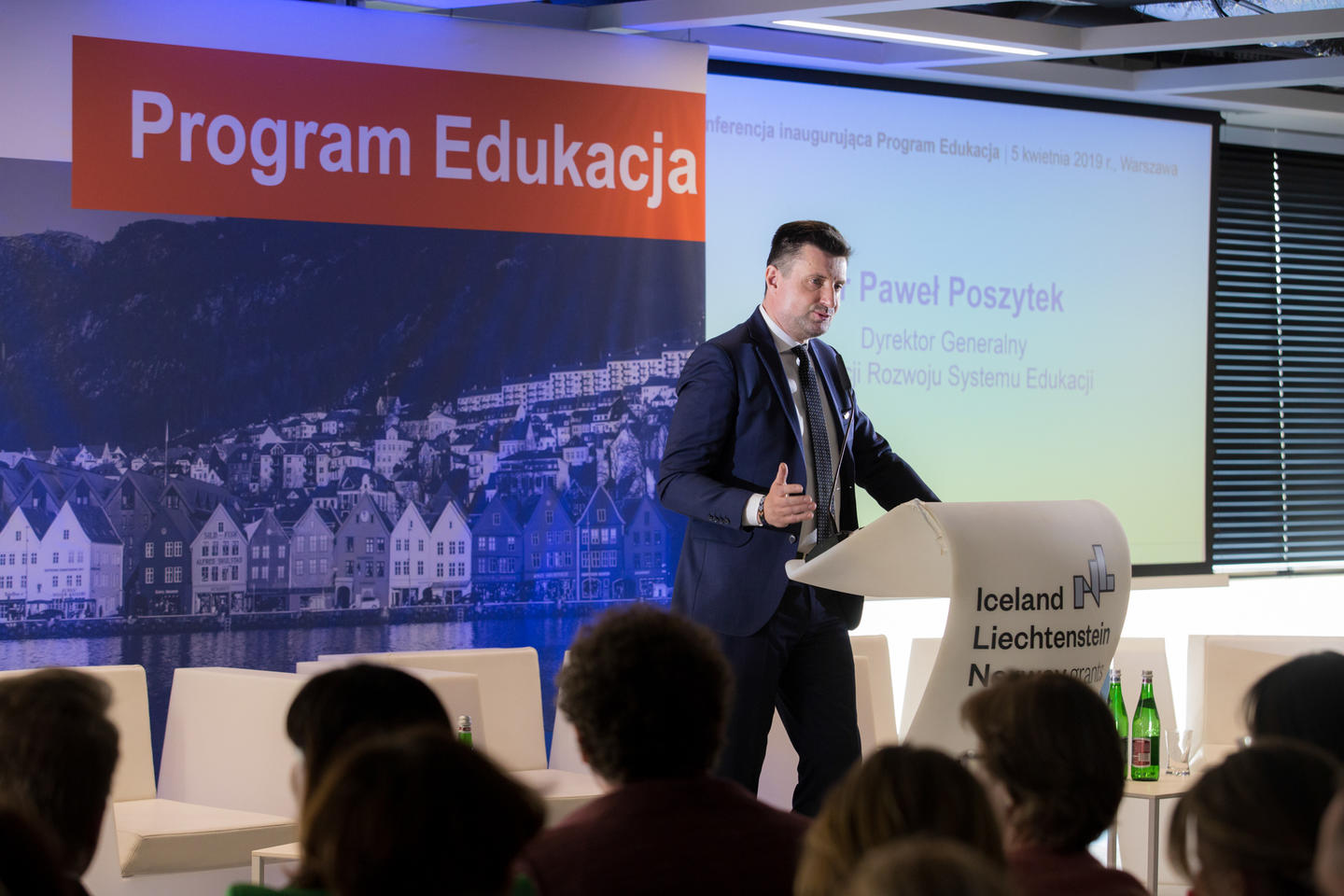Key information about the programme
- The programme is operated by: Foundation for the Development of Education System (FRSE) in Poland
- The Donor Programme Partners in this programme are: Norwegian Agency for International Cooperation and Quality Enhancement in Higher Education (DIKU), the National Agency of International Education Affairs (AIBA), the Icelandic Centre for Research (RANNIS)
- The programme’s objective is: Enhanced human capital and knowledge base
- The programme funding (excluding co-financing) amounts to €20 million and is funded through the EEA Grants only
Why is the programme needed?
While the education system in Poland has improved significantly over the last two decades, challenges remain. Lacking skills for the labour market, outdated pedagogical approaches, aging school and higher education teachers, and slow introduction of new interactive ICT-based teaching methods and tools, are some of the challenges the programme will address and offer solutions to. Education contributes to social cohesion and economic growth. The programme will result in relevant and high-quality provision of education and training needs, and contribute to required adjustments and modernisation in the education sector. The programme assists in implementing reforms, which aim to ensure the quality and adaptability of the education system.
What will the programme achieve and who are the beneficiaries?
The Polish education programme consists of four components targeting all levels of education. Support will be given to the professional development of staff, through study visits and intensive trainings (Component I), higher education mobility for student and staff (Component II), institutional cooperation projects that will address quality and relevance of vocational education and training (VET) and continuing education (Component III) and the quality and relevance of education, in the areas of school, higher and adult education (Component IV). ‘Child welfare education’ is a focus area across all the components and will be given priority in the first open call by receiving extra points in the selection process.
The programme aims to achieve 200 joint intellectual outputs (such as studies, curricula, teaching material, papers, etc) through collaborative projects; peer-learning activities for educational staff development for 800 participants; 300 students in higher education exchanges and 400 academic and administrative staff exchanges; 3 school curricula redesigned for VET/continuing education; 600 educational staff in VET trained; and 450 VET students involved in traineeships.
How will the programme strengthen bilateral relations?
The programme will contribute to strengthening bilateral relations between Poland and the Donor States. Donor partnership will be facilitated through matchmaking events and activities in conjunction with the launch of calls for proposals. Donor partnerships in projects will be encouraged in open calls for proposals under the programme. These partnerships can result in mutually beneficial activities and long-lasting cooperation between involved partners.
Availability of funding through open calls
Funding will be made available through open call for proposals. Calls will be launched on an annual basis between 2019-2021 in all four components of the programme.
Calls for proposals are planned for:
- Call 1 (Component I-IV) Second quarter 2019
- Call 2 (Component I-IV) First quarter 2020
- Call 3 (Component I-IV) First quarter 2021
Bilateral call: A contact seminar for Polish and Donor State institutions will be organised on 9 April 2019, with more information on the call for proposals, including the bilateral call.
Download the full programme agreement for more detailed information about the programme
More information can also be found on the Programme Operator’s website and the Donor Programme Partners’ websites: DIKU, AIBA and RANNIS
